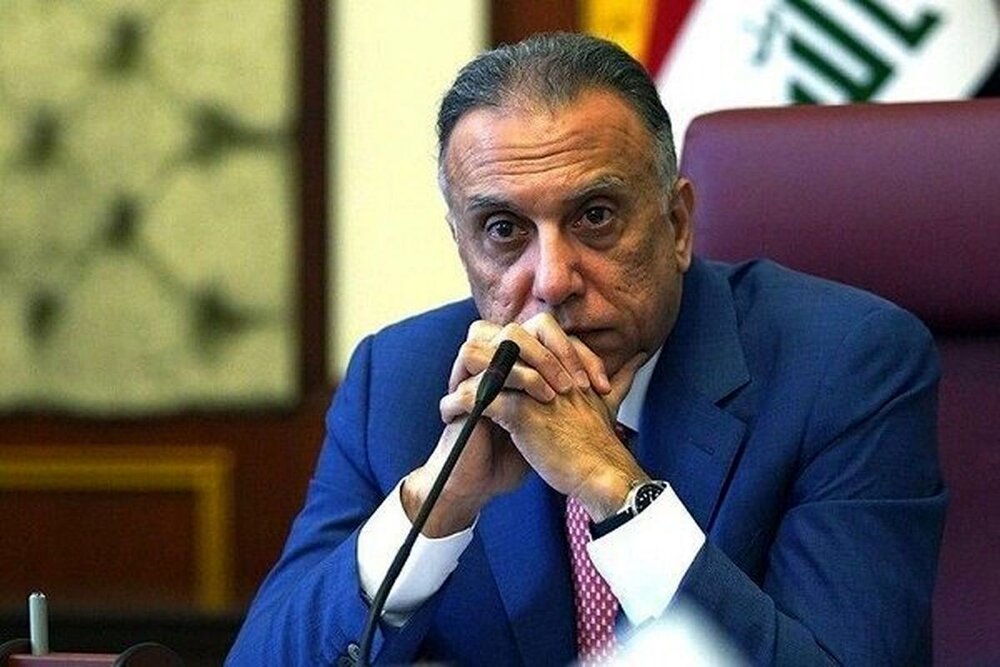A moment for political cohesion in Iraq

TEHRAN – An assassination attempt on the Iraqi prime minister’s life has once again brought into focus the need for dialogue and greater unity among leading Iraqi Shia groups.
Tensions in Iraq took a new, dangerous turn on Sunday as the country’s government announced that Prime Minister Mustafa al-Kadhimi came under attack while resting in his own residence in the fortified Green Zone of Baghdad, where most of Iraq’s high-ranking government institutions and foreign embassies, including the United States’, are situated.
The Iraqi media reported that three exploding drones carried out the attack, two of which were intercepted and downed by Iraqi security forces while the third drone crashed into the prime minister’s house. Images published by Iraqi media outlets showed remarkable damage to the house. Rubble could be seen everywhere in the backyard and inside the house. Explosives ripped through the doors and windows, throwing them afield.
Al-Kadhimi survived the assassination attempt while some members of his security detail sustained minor injuries. “I was and still am a redemption project for Iraq and the people of Iraq. The missiles of treachery will not discourage the believers and will shake a hair of the stability and determination of our heroic security forces to preserve people's security, achieve justice, and set the law in place. Thank God, I am fine and among my people. I call for calmness and restraint from all for the sake of Iraq,” the prime minister said on Twitter hours after the attack.
The attack sparked widespread expressions of sympathy with al-Kadhimi both internally and externally. Most influential Iraqi figures and officials expressed sympathy with the prime minister, calling for an investigation into the incident.
President Barham Salih condemned the attack as a heinous crime against Iraq. “We cannot accept that Iraq will be dragged into chaos and a coup against its constitutional system,” he said in a tweet.
Internationally, Iran was among the first countries to react to the targeting of al-Kadhimi. Ali Shamkhani, the secretary of Iran’s Supreme National Security Council, said the attack on the Iraqi premier was a “sedition” that could be “traced back to foreign think tanks.”
The Iranian foreign ministry struck a similar tone, warning of “conspiracies” targeting Iraq’s security and development.
“Such incidents are in line with the interests of parties that have violated the stability, security, independence and territorial integrity of Iraq over the past 18 years, and through creation of terrorist and seditionist groups, seek to achieve their sinister objectives in the region,” Saeed Khatibzadeh said in a statement on Sunday.
Also, Iranian Foreign Minister Hossein Amir Abdollahian held a phone call with his Iraqi counterpart Fuad Husain to ask about the health of al-Kadhimi. Both Amir Abdollahian and Khatibzadeh expressed delight that the Iraqi prime minister was unhurt.
The Iranian foreign minister told his Iraqi counterpart that the attack was “carried out by ill-wishers of the country in a bid to undermine its tranquility.”
The attack could not come at a more delicate moment. Iraq has just held a parliamentary vote that sent shock waves across the West Asia region and caused unease among some Iraqi political groups. These groups, including the Fatah Alliance, which is seen as the political wing of Iraq’s Popular Mobilization Forces (PMF), protested the results of the election, asserting that there was a massive voter fraud that led to the political marginalization of Iraqi Resistance groups within the PMF.
Over the past few days, proponents of the groups staged street protests in Baghdad that descended into violence. While Iraqi political factions were grappling with disputes arising from the election, al-Kadhimi’s residence came under an attack that could further complicate the political situation.
The attack, therefore, would serve as a litmus test for Iraqi politicians in terms of overcoming selfishness and showing unity at a time when the country needs cohesion and oneness most. One way to strengthen unity is to form a government that would include all major factions and excludes none.
